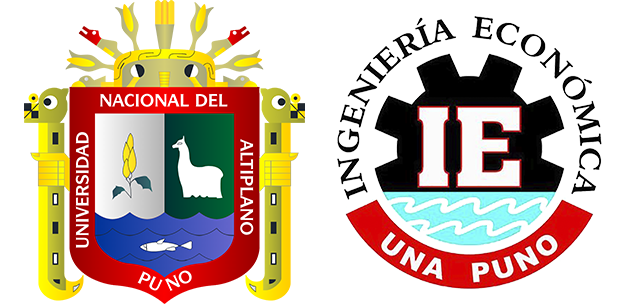Management of the digital transition and readjustment of the tourism sector in the European Union
Keywords:
digital transition, reset effect, sightseeing, European Union (EU), crisis, SMEs, entrepreneurs, new political economyAbstract
Heterodox review of Political Economy, Macroeconomics and Business Management on the readjustment effect in the tourism sector due to the impact of the digital transition and its aggravation with the COVID-19 crisis and the war in Ukraine. A synthesis of the paradigmatic change with the digital economy and how it affects labor and professional relations is proposed, requiring a transformation of the economic system and the production process. Attention is focused on the tourism sector and its paradox in the European Union: despite its growing importance, however, its recognition and transformation is insufficient. This paradox is intensified in the Spanish case, where more European recovery funds are being allocated and yet the vulnerability of its SMEs and tourism entrepreneurs is growing.
Metrics
References
Arnedo E, Valero J, Sánchez-Bayón A (2021) Spanish tourist sector sustainability: Recovery plan, green jobs and wellbeing opportunity. Sustainability, 13(20), 11447. DOI: https://doi.org/10.3390/su132011447
Bagus P, Peña-Ramos J, Sánchez-Bayón A (2022) Capitalism, COVID-19 and lockdowns. Business Ethics, the Environment & Responsibility-BEER, 31(SI), 1–11. https://doi.org/10.1111/beer.12431
Bagus P, Peña-Ramos, J, Sánchez-Bayón, A (2021) COVID-19 and the Political Economy of Mass Hysteria. Int. J. Environ. Res. Public Health, 18, 1376. https://doi.org/10.3390/ijerph18041376
Birner J (1999) The Place of the Ricardo Effect in Hayek’s Economic Research Programme. Revue d’Économie Politique, 109(6): 803–816.
Boettke P, Haeffele-Balch S, Storr V (2016) Mainline Economics: Six Nobel Lectures in the Tradition of Adam Smith. Arlington: Mercatus Center-George Mason University.
Brynjolfsson E, McAfee A (2014). The second machine age: work, progress, and prosperity in a time of brilliant technologies. New York: W.W. Norton & Co.
Card D, Kruger A (1995) Myth and Measurement: The New Economics of the Minimum Wage. Princeton: Princeton University Press.
Card D, Krueger A (1994) Minimum wages and employment: a case study of the fast-food industry in New Jersey and Pennsylvania. American Economic Review. 84(4): 772–793.
Comisión Europea (2019) Un pacto verde europeo (URL: Un Pacto Verde Europeo | Comisión Europea (europa.eu); consultado 10/02/2022).
Comisión Europea (2014) Turismo: periodo de programación 2014-2020 (URL: Turismo - Política Regional - Comisión Europea (europa.eu); consultado 10/02/2022).
Comisión TRAN (2019) TRAN Committee: European tourism: recent developments and future changes (URL: https://research4committees.blog/tran/ & Research for TRAN Committee - European tourism: recent developments and future challenges | Think Tank | European Parliament (europa.eu); consultado 10/02/2022).
Costanza R, Caniglia B, Fioramonti L, Kubiszewski I, Lewis H, Lovins L, McGlade J, Mortensen L, Philipsen D, Pickett K, Ragnarsdóttir K, Roberts D, Sutton P, Trebeck K, Wallis S, Ward J, Weatherhead M, Wilkinson R (2018) Toward a Sustainable Wellbeing Economy. Solutions Journal (URL: https://thesolutionsjournal.com/2018/04/17/toward-sustainable-wellbeing-economy/; consultado 10/02/2022). Version en Resilience (URL: https://www.resilience.org/stories/2018-05-11/toward-a-sustainable-wellbeing-economy/; consultado 10/02/2022). Versión en WEAII (URL: https://weall.org/about; consultado 10/02/2022)
Del Valle A (2013) Europa más allá de la Unión: pacto confederal y nuevo relato europeo. Teoría y Realidad Constitucional, 32: 341-355.
Diamandis P, Kotler S (2014) Abundance. New York: Free Press.
Diamond P, Vartiainen H (2012) Behavioral Economics and its applications. Princeton: Princeton University Press.
Durán F (2013) Repensar la cooperación al desarrollo, Saarbrücken: EAE.
Easterlin R (1974) Does Economic Growth Improve the Human Lot? in David, P., Reder, M. (eds.). Nations and Households in Economic Growth, New York: Academic Press Inc.
Easterlin R, Angelescu McVey L, Switek M, Sawangfa O, Zweig J (2010) The happiness-income paradox revisited. Proceeding of the National Academy of Sciences, 107(52): 22463-68.
EU-Consilium (2019) The Economy of Wellbeing: going beyond the GDP (URL: https://www.consilium.europa.eu/en/infographics/economy-wellbeing/; consultado 10/02/2022).
EU-Consilium (2019) The Economy of Well-Being - Executive Summary of the OECD Background Paper on "Creating opportunities for people's well-being and economic growth". doc. 10414/18 ADD 1 (URL: https://data.consilium.europa.eu/doc/document/ST-10414-2019-INIT/en/pdf; consultado 10/02/2022).
EU-Horizon Europe (2021) What is Horizon Europe? (URL: Horizon Europe | European Commission (europa.eu); consultado 10/02/2022).
Fernández I (2015) Felicidad organizacional. Santiago: Ediciones B
Fernández S (2015) Vivir con abundancia. Madrid: Plataforma Editorial
Florida R (2010) The Great Reset: How New Ways of Living and Working Drive Post-Crash Prosperity. Toronto: Random House Canada.
Friedman M (1953) Essays in Positive Economics. Chicago: University of Chicago Press.
Friedman M, Schwartz A (1963) A Monetary History of the United States, 1867–1960. Princeton: Princeton University Press.
Galbraith JK (1958) The Affluent Society. Boston: Houghton Mifflin.
García D, Sánchez-Bayón A (2021) Cultural consumption and entertainment in the Covid-19 lockdown in Spain: Orange economy crisis or review? VISUAL REVIEW. International Visual Culture Review, 8(2): 131-149. https://doi.org/10.37467/gka-revvisual.v8.2805.
García-Vaquero M, Sánchez-Bayón A, Lominchar J (2021) European Green Deal and Recovery Plan: Green Jobs, Skills and Wellbeing Economics in Spain. Energies, 14(14), 4145. https://doi.org/10.3390/en14144145.
Garrison R (2001) Time and Money. London: Routledge.
Gehrke C (2003) The Ricardo Effect: Its Meaning and Validity. Economica, 70 (277): 143–158.
Gobierno de España (2021). Escudo Social – Ministerio de Derechos Sociales y Agenda 2030 (URL: Ministerio de Derechos Sociales y Agenda 2030 - Escudo Social (mdsocialesa2030.gob.es); consultado 10/02/2022).
Gómez P (2019) La riqueza de las naciones en el s. XXI. Almería: Círculo Rojo.
González E, Sánchez-Bayón A (2021) Rescate y transformación del sector turístico español vía fondos europeos Next Gen EU. Encuentros multidisciplinares, 23(69): 1-15.
Hayek F (1952) The sensory order. Chicago: University of Chicago.
Hayek F (1939) Profits, Interest, and Investment, and other Essays on the Theory of Industrial Fluctuations. In Hansjörg Klausinger (ed.) The Collected Works of F.A. Hayek (vol. 8, Business Cycles Part II, 2012).
Hayek F (1935) Prices and Production. In Salerno J (ed.) Prices and Production and Other Works. Auburn: Mises Institute (2008).
Hazlitt H (1946) Economics in one lesson. New York: Harper & Row.
Huerta de Soto J (2009) The theory of dynamic efficiency, London: Routledge.
Huerta de Soto J (2006) Money, Bank Credit, and Economic Cycles. Auburn: Mises Institute.
Huerta de Soto J (2000) La Escuela Austriaca. Madrid: Síntesis.
Huerta de Soto J, Sánchez-Bayón A, Bagus P (2021) Principles of Monetary & Financial Sustainability and Wellbeing in a Post-COVID-19 World: The Crisis and Its Management. Sustainability, 13(9): 4655 (1-11). https://doi.org/10.3390/su13094655.
IMF (2020) World Economic Outlook (URL: World Economic Outlook, October 2020: A Long and Difficult Ascent (imf.org); consultado 10/02/2022).
INE (2019) Turismo de España (CSTE). Revisión estadística 2019 Serie 2016 – 2018 (URL: Cuenta Satélite del Turismo de España (CSTE). Revisión estadística 2019. (ine.es); consultado 10/02/2022).
INE (2022) Turismo de España en 2020: revisado en 2022 (URL: INEbase / Servicios /Hostelería y turismo /Cuenta satélite del turismo de España / Últimos datos; consultado 10/02/2022).
Kaldor N (1942) Professor Hayek and the Concertina-Effect. Economica, 9(36): 359–382.
Keynes J (1937) The General Theory of Employment. The Quaterly Journal of Economics, 51(2): 209-223. https://www.jstor.org/stable/1882087.
Keynes J (1936) The General Theory of Employment, Interest and Money. London: Macmillan.
Keynes J (1933) The means to prosperity. The Times (luego desarrollado, como planfleto y publicado por Macmillan).
Keynes J (1930) Economic Possibilities for our Grandchildren. Nation´s Business (1927) y Macmillan (1930, de manera póstuma incorporado en Keynes, J.M. (1963) Essays in persuasion. New York: W.W. Norton & Co., p. 358-373).
Klausinger H (2012) Introduction. In Klausinger, H. (ed.). The Collected Works of F.A. Hayek (vol. 8, Business Cycles Part II, 1–43).
Kirzner I (1987) Austrian School of Economics, The New Palgrave: A Dictionary of Economics (v.1), pp. 145–151.
Kurzweil R (2005) The singularity is near. New York: Penguin Group.
Kuznet S (1934) National Income, 1929–1932. 73rd US Congress, 2d session, Senate document no. 124. Washington DC: US Congress.
Kuznets S (1933a) National Income. In Encyclopaedia of the Social Sciences. New York: Macmillan.
Kuznets S (1933b) Seasonal Variations in Industry and Trade. New York: National Bureau of Economic Research.
Kuznets S (1930) Secular Movements in Production and Prices: The Nature and their Bearing upon Cyclical Fluctuations. Boston: Houghton Mifflin Co.
Le Gales P, King D (2017) Reconfiguring European States in Crisis. Corby: Oxford University Press.
Levy D, Mayer T, Raviv A (2022) Economists in the 2008 Financial Crisis: Slow to See, Fast to Act. Journal of Financial Stability, 60: 1-90. DOI: 10.1016/j.jfs.2022.100986.
Liadze I, Macchiarelli C, Mortimer-Lee P, Sanchez P (2022) The Economic Costs of the Russia-Ukraine Conflict. London: National Institute of Economic and Social Research (Policy Paper nº 32).
Macron E, Imbert C (2020) The Macron Doctrine. Group d´études géopolitiques (URL: The Macron Doctrine - Groupe d'études géopolitiques (geopolitique.eu); consultado 10/01/2022).
Llena-Nozal A, Martin N, Murtin F (2019) The Economy of Well-being Creating opportunities for people’s well-being and economic growth. SDD WORKING PAPER No. 102. Paris: OCDE. https://doi.org/10.1787/18152031.
Lucas R (1972) Expectations and the Neutrality of Money. Journal of Economic Theory, 4(2): 103-124.
Lucas R (1975) An Equilibrium Model of the Business Cycle. Journal of Political Economy, 83(6): 1113-1144.
Marx K (1867-94) Das Kapital, Kritik der politischenÖkonomie (3 vols.). Hanover: Meisner.
Menger C (1871) Grundsätze der volkswirtschaftslehre. Leipzig: Duncker & Humblot.
Menger C (1883) Untersuchungen uber die Methode der Socialwissenschaften und der Politischen Oekonomie Insbesondere. Leipzig: Duncker & Humblot.
Mises L (1929) Kritik des Interventionismus. Jena: Gustav Fischer Verlag.
Mises L (1944) Omnipotent Government: The Rise of the Total State and Total War. New Haven: Yale University Press
Moreno A (2013) El fin del relato europeo. La crisis del proceso de integración y su impacto sobre las narrativas europeas. Revista de Derecho Comunitario Europeo, 45: 607-630.
Moss L, Vaughn K (1986) Hayek´s Ricardo effect: a second look. History of Political Economy, 18(4): 545–565.
Navajas V, López C, Sánchez-Bayón A (2014) Aprendizaje participativo en disciplinas duales mediante estudio de casos trasversales: una mirada a los problemas del emprendimiento en España. Revista Universidad & Empresa, 16(26): 173-190.
Navajas V, López C, Sánchez-Bayón A (2013) Problemas del emprendedor inmigrante en España: evaluación de las políticas laborales y sociales españolas en el último lustro. Revista Libre Empresa, 10 (1): 13-49.
OCDE (2021) Measuring Well-being and Progress. Well-being Research (URL: Measuring Well-being and Progress: Well-being Research - OECD).
OCDE (2021) Measuring Well-being and Progress. Working Papers (URL: Measuring Well-being and Progress: Working Papers - OECD).
OCDE (2019) The Economy of Well-being: Creating Opportunities for People’s Well-being and Economic Growth. Paris: OCDE.
OCDE (2012) Digital Economy. París: OCDE (URL: The Digital Economy - 2012 (oecd.org)).
ONU (2015) Transforming our World: the 2030 Agenda for sustainable development. Gral. Assembly Resolution on Sept. 25, 2015 (A/RES/70/1).
ONU (2012) Defining a New Economic Paradigm: The Report of the High-Level Meeting on Wellbeing and Happiness. New York: ONU.
ONU-SG (2012) Secretary-General SG/SM/14204 in Message to Meeting on “Happiness and Well-being” Calls for “Rio+20” Outcome that Measures More than Gross National Income (URL: http://www.un.org/News/Press/docs/2012/sgsm14204.doc.htm).
ONU-SNDP (2013). Secretariat for the New Development Paradigm (SNDP) - Working Group meeting in Bhutan (URL: http://www.newdevelopmentparadigm.bt/category/resources/).
ONU-UNDP (2013) A million voices: The World We Want: A sustainable Future with Dignity for All (URL: http://www.worldwewant2015.org/millionvoices).
ONU-GA (2015) Transforming our World: the 2030 Agenda for Sustainable Development (UN Resolution A/RES/70/1), containing the goals (passed: Sept. 25, 2015; published: Oct. 21, 2015).
ONU-SDG Fund (2015) Goal 8: decent work and economic growth (URL: www.sdgfund.org/goal-8-decent-work-and-economic-growth; consultado el 10/02/2022).
ONU-UNCTAD (2019) Digital Economy Report. New York: ONU.
Parlamento Europeo (2022) El turismo (URL: El turismo | Fichas temáticas sobre la Unión Europea | Parlamento Europeo (europa.eu); consultado el 10/02/2022).
Ricardo, D. (1817) On the Principles of Political Economy and Taxation. London: J. Murray
Romer P (2015) Mathiness in the theory of economic growth. American Economic Review, 105(5): 89-93 DOI:10.1257/aer.p20151066.
Rothbard, M (1977) Fetter the Radical (Preface & Introduction), en Fetter F (1905) Capital, Interest, and Rent: Essays in the Theory of Distribution. Kansas City: Sheed Andrews and McMeel, Inc.
Ruys P (2017) A Development of the Theory of the Ricardo Effect. Quarterly Journal of Austrian Economics, 20(4): 297–335.
Sánchez-Bayón A (2021a) Balance de la economía digital ante la singularidad tecnológica: cambios en el bienestar laboral y la cultura empresarial. Sociología y Tecnociencia, 11(extra 2). 53-80. DOI: https://doi.org/10.24197/st.Extra_2.2021.53-80.
Sánchez-Bayón A (2021b) Urgencia de una filosofía económica para la transición digital: Auge y declive del pensamiento anglosajón dominante y una alternativa de bienestar personal, Miscelánea Comillas, 79(155): 521-551. DOI: https://doi.org/10.14422/mis.v79.i155.y2021.004.
Sánchez-Bayón A (2021c) Economía de bienestar personal: cómo la digitalización y el efecto reajuste mejoran las relaciones laborales y los procesos productivos. Revista Argentina de Investigación en Negocios, 7(2): 25-52.
Sánchez-Bayón A (2021d) ¿Puede el salario mínimo agotar la economía de bienestar y frenar la economía digital? Revista Plus Economía, 9(2), 71-106.
Sánchez-Bayón A (2021e) Inspiración de la regulación y políticas públicas de la nueva economía social: semblanza de Rifkin desde Comunicación y Economía. Derecho y Cambio Social, 63: 1-14.
Sánchez-Bayón A (2020a) Renovación del pensamiento económico-empresarial tras la globalización: Talentism & Happiness Economics, Bajo Palabra, 24: 293-318. https://doi.org/10.15366/bp.2020.24.015.
Sánchez-Bayón A (2020b) Una Historia de RR.HH. y su transformación digital: Del fordismo al talentismo y la gestión de la felicidad, Rev. Asociación Española de Especialistas de Medicina del Trabajo, 29(3): 198-214.
Sánchez-Bayón A (2020c) Medidas de economía de bienestar que destruyen empleo en la economía digital. Semestre Económico, 23(55), 87-112. DOI: https://doi.org/10.22395/seec.v23n55a4.
Sánchez-Bayón A (2020d) Estudios económicos en la encrucijada, Semestre Económico, 23(55), 47-66. DOI: https://doi.org/10.22395/seec.v23n55a2.
Sánchez-Bayón A (2019a) Problemas convergentes de derecho, economía y sociología en la posglobalización: transición entre la economía de bienestar y las economías colaborativas, circulares, autónomas y naranjas. Derecho y Cambio Social, 57: 12-41.
Sánchez-Bayón A (2019b) Transición a la economía gig, Encuentros Multidisciplinares, 21(62): 1-19.
Sánchez-Bayón A (2019c) Una historia crítica de sociología del trabajo y de las organizaciones: de trabajadores de cuello azul y blanco a Knowmads & freeriders. Rev. Miscelania Comillas, 77 (151): 431-51. DOI: https://doi.org/10.14422/mis.v77.i151.y2019.008
Sánchez-Bayón A (2019d) Retos jurídico-sociales relativos al fin de recursos humanos y la emergencia de talento. Revista Gral. Derecho del Trabajo y de la Seguridad Social-Iustel, 54: 424-440.
Sánchez-Bayón A (2019e) Talentismo: del fin de los recursos humanos a la emergencia del talento. Lan Harremanak, 42: 178-196. DOI: https://doi.org/10.1387/lan-harremanak.21077.
Sánchez-Bayón A (2016) Problemas y retos para alcanzar la sociedad del conocimiento: el déficit ético-moral y los cambios económico-sociales, Madrid: Delta Publicaciones.
Sanchez-Bayon A, Bagus P, Pena, J (2021). Political Economy of Mass Neurosis during the COVID-19 Crisis. J Infect Dis Res, 4 (S1): 1-15.
Sánchez-Bayón A, García-Vaquero M, Lominchar J (2021) Wellbeing Economics: beyond the Labour compliance & challenge for the business culture. Journal of Legal, Ethical and Regulatory Issues, 24(si). 1-13.
Sánchez-Bayón A, Gonzálezo E, Andreu Á (2022) Spanish Healthcare Sector Management in the COVID-19 Crisis Under the Perspective of Austrian Economics and New-Institutional Economics. Frontiers in Public Health 10:801525 (1-15). doi: 10.3389/fpubh.2022.801525.
Sánchez-Bayón A, Trincado E (2020) Business and labour culture changes in digital paradigm, Cogito. Multidisciplinary Research Journal, 12(3): 225-243.
Schwab K, Malleret T (2019) COVID-19: The Great Reset. Genova: WEF.
Schmoller G (1900) Grundriss der allgemeinen volkswirtschaftslehre. Leipzig: Duncker & Humblot.
Steele G (1988) Hayek’s Ricardo Effect, History of Political Economy, 20(4): 669–672.
Suresh R (2010) Economy and Society. Evolution of Capitalism. Delhi: SAGE.
Thaler R (2016) Behavioral Economics: past, present, and future. American Economic Review. 106 (7): 1577–1600. doi:10.1257/aer.106.7.1577.
Trincado E, Sánchez-Bayón A, Vindel, J (2021) The European Union Green Deal: Clean Energy Wellbeing Opportunities and the Risk of the Jevons Paradox. Energies, 14(14), 4148. https://doi.org/10.3390/en14144148.
Valero J, Sánchez-Bayón A (2018) Balance de la globalización y teoría social de la posglobalización. Madrid: Dykinson
VV.AA. (2010) Proyecto europeo 2030: retos y oportunidades. Bruselas: Consejo Europeo.
Walras L (1883) Théorie mathématique de la richesse sociale. Lausanne: Corbaz.
Wilson T (1940) Capital Theory and the Trade Cycle. Review of Economic Studies, 7(3): 169–179.
Downloads
Published
How to Cite
Issue
Section
License
Copyright (c) 2022 Antonio Sánchez-Bayón

This work is licensed under a Creative Commons Attribution 4.0 International License.














